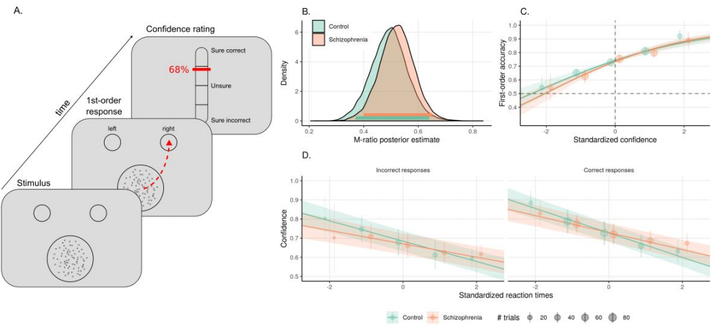Confidence in visual motion discrimination is preserved in individuals with schizophrenia

Abstract
Background: Metacognition is the set of reflexive processes that allows humans to evaluate the accuracy of their mental operations. Metacognitive deficits have been described in people with schizophrenia using mostly narrative assessment, and they have been linked to several key symptoms. Methods: We assessed metacognitive performance objectively by asking people with schizophrenia or schizoaffective disorder (n = 20) and matched healthy participants (n = 21) to perform a visual discrimination task and report their confidence in their performance. Metacognitive performance was defined as the adequacy between visual discrimination performance and confidence. Results: Bayesian analyses revealed equivalent metacognitive performance in the 2 groups, despite a weaker association between confidence and trajectory tracking during task execution among people with schizophrenia. We reproduced these results using an evidence accumulation model, which showed similar decisional processes in the 2 groups. Limitations: These results from a relatively small study sample cannot be generalized to other perceptual and nonperceptual tasks. To meet this purpose, ecological tasks are needed. As well, the role of antipsychotic medication and design deserves greater attention in the future. Conclusion: We found similar decisional and metacognitive capabilities between people with schizophrenia and healthy controls in a visual discrimination task.